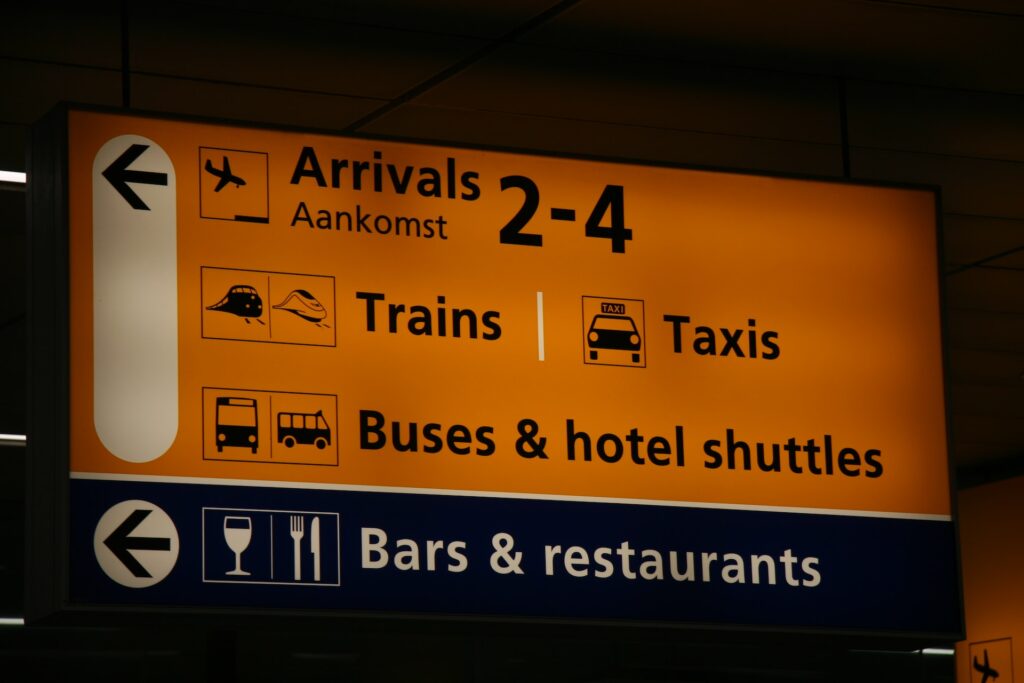If you travel to an English-speaking country, it’s a good idea to put into practice your knowledge of English. It doesn’t matter if it’s 1, 2, or more weeks; the important thing is that you take advantage of that moment, practice, and learn as much as possible. And yes, it can be somewhat difficult at the beginning, but here are some suggestions for you to take advantage of your vacations to practice.
First of all, before you start your trip, search on the internet or get a book with common phrases that are used at airports, trains, buses, taxis, etc. This will help you recognize words in signs, posts, maps, and others. Also, it’s a good idea to search for the pronunciation of these words or phrases so as to recognize them in places like airports or train stations where they make a lot of announcements via speakers in English. With those words/phrases that you find more interesting, you can create your own glossary.
Once you start your trip, be it by plane or any other transportation, pay attention to the words/phrases that you see in English; for example, at airports, you’ll find “gate”, “on time”, “delayed”. At stores, in stations, or at airports, you will find “sale”, “discount”, “we accept credit/debit cards,” among others. Pay attention to these phrases and words to get used to them and recognize them quickly.

Take your time to try to answer in English. We know that it’s difficult in these situations, but we must do it to put into practice what we know. First, when someone talks to you, try to understand the full idea, not just the words in isolation. Then, take a few seconds to prepare your answers in your head, and when you’re ready, respond. If they don’t understand you, check what you said and repeat it. Avoid communicating in your native language unless it’s something urgent.
Once you get to your destination, look for people with whom you can communicate in English. It’s a common mistake to surround yourself with people that speak Spanish; it’s easier, but this won’t help your English learning. You must get out of your comfort zone and try to communicate with people who speak English.
Start with stores and tourist places that you visit; listen to the way the people talk and try answering in English. Museums with guided tours are great for this since you will listen to the tour in English and can ask questions or add information when necessary. Another place where you could try something similar is on tour buses, where you will be with other tourists that can speak English. With them, you must try to communicate, you can ask them where they are from, for recommendations of places to visit, where they are staying, etc. The more you do it, the more comfortable you will feel speaking in English.

Don’t worry about making mistakes, since these are part of the learning process. If someone doesn’t understand what you’re saying, try repeating it slower, changing your idea, or using your body language. What matters is that you make yourself understood as much as you can in English. Also, a good idea is to ask for corrections and ask, “how can I say?” when you’re trying to communicate.
To accomplish everything that we mentioned previously, you must be patient and think about everything you will learn after the trip. If you find somebody who doesn’t want to speak or who speaks in a bad manner, don’t worry about it and find another person you can talk to. The important thing is that you keep making the effort to speak and learn more when you’re traveling.
